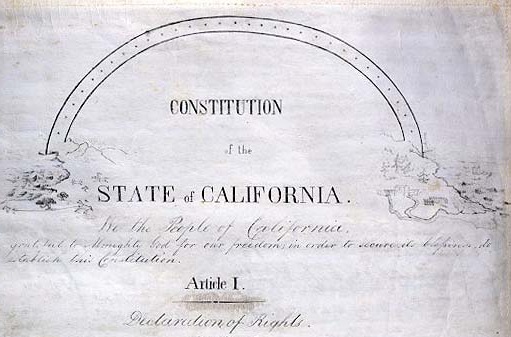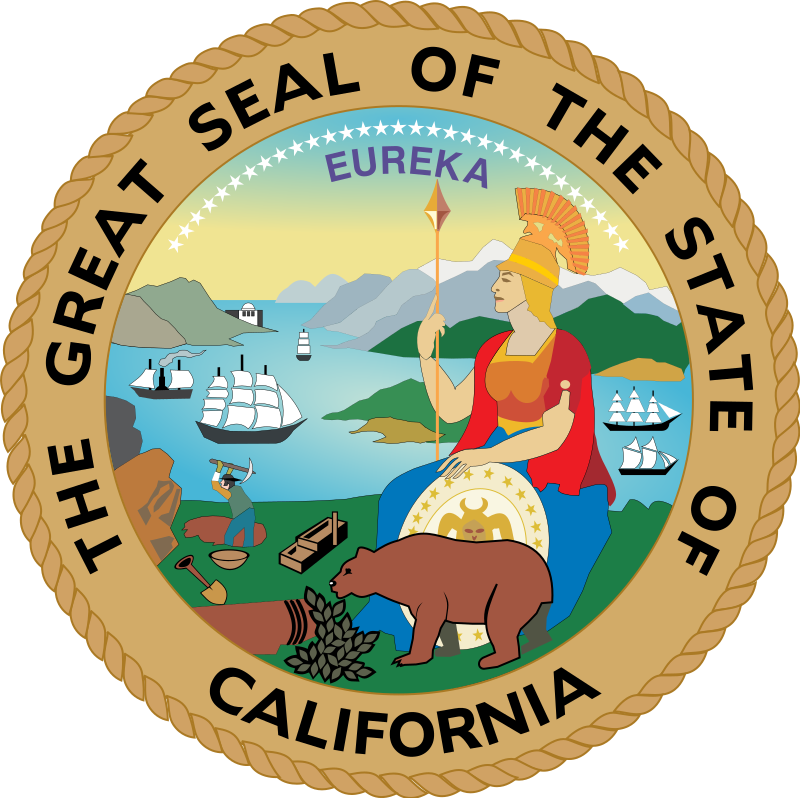
California Bear Flag. (Photo: ca.gov)
California’s Public Employees System
Legislative employees exempt from civil service
By Chris Micheli, August 1, 2020 8:15 am
The public employee system in California is established by the state’s constitution, including its civil service. Article VII, dealing with public officers and employees, was added to the California Constitution by Proposition 14 on the June 8, 1976 ballot. This article contains the following eleven sections:
Section 1 states that the civil service includes every officer and employee of the State except as otherwise provided in this Constitution. This section states that, in the civil service, permanent appointment and promotion must be made under a general system based on merit ascertained by competitive examination.
Section 2 establishes a Personnel Board of 5 members appointed by the Governor and approved by the Senate, a majority of the membership concurring, for 10-year terms and until their successors are appointed and qualified.
Section 3 provides that the board must enforce the civil service statutes and, by majority vote of all its members, prescribe probationary periods and classifications, adopt other rules authorized by statute, and review disciplinary actions.
Section 4 specifies that the following are exempt from civil service: (a) Officers and employees appointed or employed by the Legislature, either house, or legislative committees. (b) Officers and employees appointed or employed by councils, commissions or public corporations in the judicial branch or by a court of record or officer thereof. (c) Officers elected by the people and a deputy and an employee selected by each elected officer. (d) Members of boards and commissions. (e) A deputy or employee selected by each board or commission either appointed by the Governor or authorized by statute. (f) State officers directly appointed by the Governor with or without the consent or confirmation of the Senate and the employees of the Governor’s office, and the employees of the Lieutenant Governor’s office directly appointed or employed by the Lieutenant Governor. (g) A deputy or employee selected by each officer, except members of boards and commissions, exempted under Section 4(f). (h) Officers and employees of the University of California and the California State Colleges. (i) The teaching staff of schools under the jurisdiction of the Department of Education or the Superintendent of Public Instruction. (j) Member, inmate, and patient help in state homes, charitable or correctional institutions, and state facilities for mentally ill or retarded persons. (k) Members of the militia while engaged in military service. (l) Officers and employees of district agricultural associations employed less than 6 months in a calendar year. (m) In addition to positions exempted by other provisions of this section, the Attorney General may appoint or employ six deputies or employees, the Public Utilities Commission may appoint or employ one deputy or employee, and the Legislative Counsel may appoint or employ two deputies or employees.
Section 5 provides that a temporary appointment may be made to a position for which there is no employment list. However, no person may serve in one or more positions under temporary appointment longer than 9 months in 12 consecutive months.
Section 6 specifies that the Legislature may provide preferences for veterans and their surviving spouses.
Section 7 prohibits a person holding a lucrative office under the United States or other power from holding a civil office of profit.
Section 8 specifies that every person must be disqualified from holding any office of profit in this State who has been convicted of having given or offered a bribe to procure personal election or appointment.
Section 9 provides that no person or organization which advocates the overthrow of the Government of the United States or the State by force or violence or other unlawful means or who advocates the support of a foreign government against the United States in the event of hostilities (a) Hold any office or employment under this State, including but not limited to the University of California, or with any county, city or county, city, district, political subdivision, authority, board, bureau, commission or other public agency of this State; or (b) Receive any exemption from any tax imposed by this State or any county, city or county, city, district, political subdivision, authority, board, bureau, commission or other public agency of this State.
Section 10 specifies that no person who is found liable in a civil action for making libelous or slanderous statements against an opposing candidate during the course of an election campaign for any federal, statewide, Board of Equalization, or legislative office or for any county, city and county, city, district, or any other local elective office can retain the seat to which he or she is elected, where it is established that the libel or slander was a major contributing cause in the defeat of an opposing candidate.
Section 11 prohibits the Legislators’ Retirement System from paying any unmodified retirement allowance or its actuarial equivalent to any person who on or after January 1, 1987, entered for the first time any state office for which membership in the Legislators’ Retirement System was elective or to any beneficiary or survivor of such a person, which exceeds the higher of (1) the salary receivable by the person currently serving in the office in which the retired person served or (2) the highest salary that was received by the retired person while serving in that office. In addition, this section prohibits the Judges’ Retirement System from paying any unmodified retirement allowance or its actuarial equivalent to any person who on or after January 1, 1987, entered for the first time any judicial office subject to the Judges’ Retirement System or to any beneficiary or survivor of such a person, which exceeds the higher of (1) the salary receivable by the person currently serving in the judicial office in which the retired person served or (2) the highest salary that was received by the retired person while serving in that judicial office.
- Response to Interrogatories - February 20, 2026
- Insignia of Nonprofit Associations - February 19, 2026
- Endangered Species Regulation - February 19, 2026




